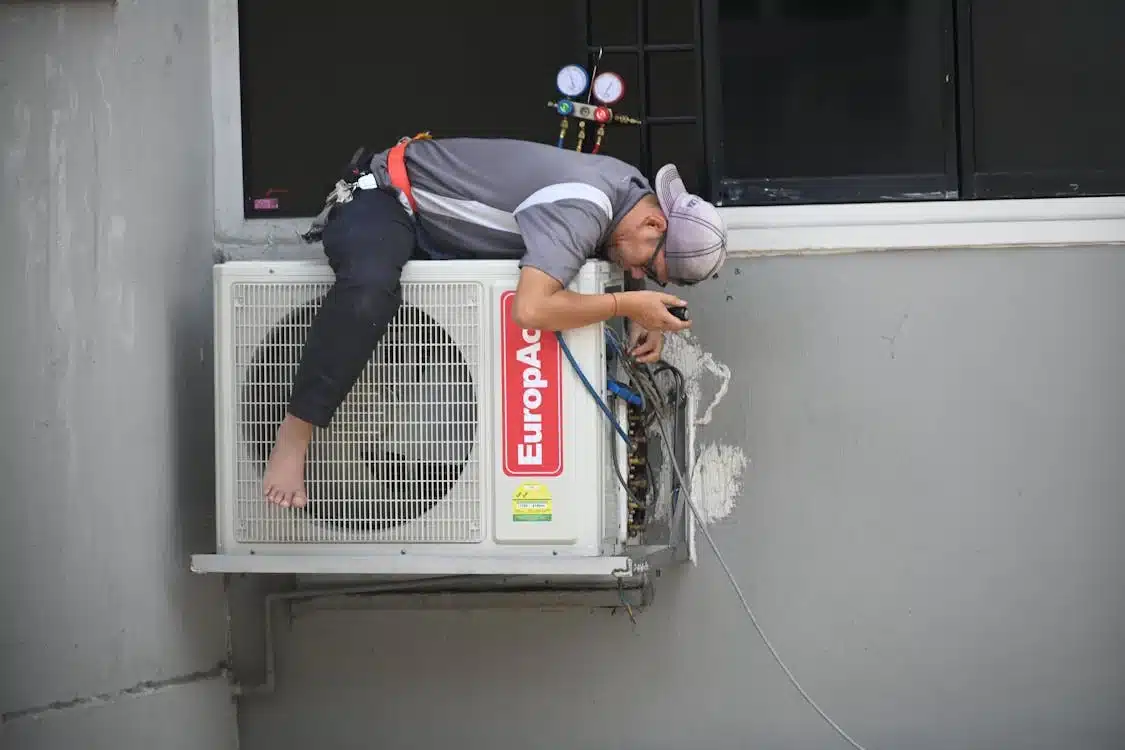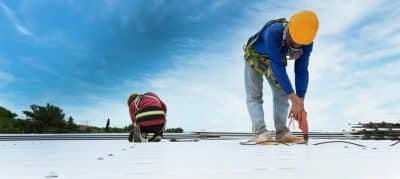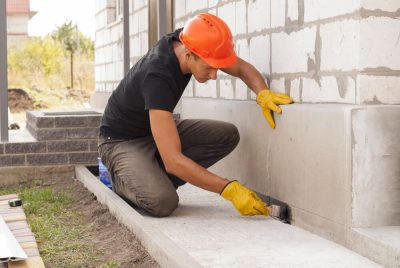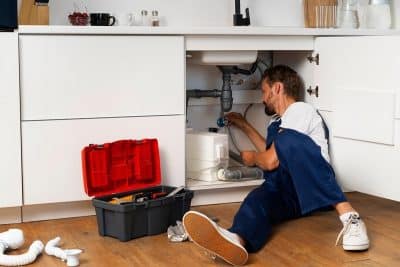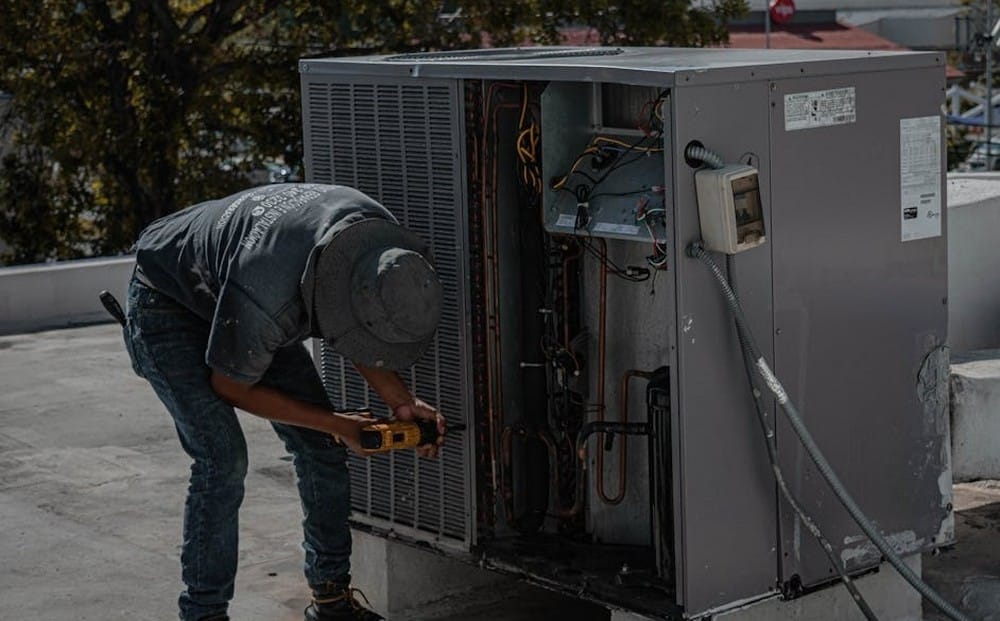
We all know how homeowners are embracing DIY projects mostly for the satisfaction that comes with creativity, achievement, and saving money. For home improvement, basic tasks are perfect for DIY, especially the ones that don’t require technical know-how, such as painting or adding outdoor patio lighting.
On the other hand, some tasks, especially those that involve HVAC systems, can be complex, raising a challenging question: should you go the DIY route or call in the experts?
In this article, we’ll explore both sides of the coin to help you make the best choice when installing, maintaining, or repairing your HVAC system.
DIY HVAC Projects
A HVAC system is crucial for your home’s comfort, and that’s why it needs to be well-maintained. A well-maintained HVAC system will function properly, preventing frequent expensive repairs and reducing your energy bill.
While such a system is complex, you can safely and effectively do some of its maintenance tasks without requiring the help of a professional. These DIY tasks include:
- Changing air filters to improve air quality and allow the system to run more efficiently.
- Cleaning air vents and registers to clear accumulated dust, debris, and pollen to improve efficiency and prevent diseases like asthma.
- Checking and adjusting your thermostat settings to optimize energy usage and comfort in your home.
- Cleaning the outdoor condenser unit to remove debris such as grass clippings and leaves from and around the unit to improve airflow. Cleaning can also prolong the lifespan of your system.
Benefits of DIY HVAC Projects
Some reasons that entice most homeowners to DIY HVAC tasks are:
- Potential for cost savings: Hiring a professional to help you with HVAC maintenance or repair tasks comes with expenses such as labor costs. However, DIY allows you to use the money to source the materials required.
- Gain knowledge and expertise about HVAC systems: Completing DIY tasks, such as changing air filters or cleaning vents, can help you understand more about the HVAC system. This knowledge can help you identify minor issues before they escalate.
- Greater control over your home’s comfort: Knowing how to do some tasks yourself can help you customize solutions that will meet your home’s needs. You can also do tasks when you’re available. For example, knowing how to clean your filters and ducts can help improve your home’s comfort, and you can do this task on your own time, avoiding inconvenience.
- A feeling of satisfaction for your achievement: Completing a DIY project brings a sense of accomplishment and also boosts your confidence for tackling such tasks in the future.
Risks of DIY HVAC Projects
While the above benefits can allure you into undertaking DIY tasks, it’s good to weigh them against the risks. These risks might include:
- Safety hazards: HVAC systems contain electrical components, refrigerants, and other hazardous materials that require proper training and a better understanding of safety precautions to handle. For example, HVAC systems such as the popular ductless mini-splits call for precise wiring to ensure safety. That’s why we always recommend leaving this task to the pros.
- Improper installations: HVAC requires precise measurements, calculations, and a better understanding of the building codes. Any mistake can lead to inefficiency, high energy usage, or damage to the system or home.
- Warranty voids: Most HVAC manufacturers require professional installation and maintenance to cover the cost of repairs or replacement. Manufacturers can void your warranty if anything gets damaged during a DIY installation or repair, leaving you to cater for all the costs.
- Code compliance: A professional fully understands HVAC installation and repair, ensuring they adhere to the regulations to ensure safety and avoid costly rework and fines. On the other hand, if you have no experience, you might not understand the importance of HVAC code compliance. This can leave you with an unsafe environment, penalties, and voided insurance premiums.
On top of the above risks, you may find yourself wasting your precious time while DIY-ing. Lack of HVAC expertise will require more time to research the issue, especially if it requires technical knowledge.
Professional HVAC Projects
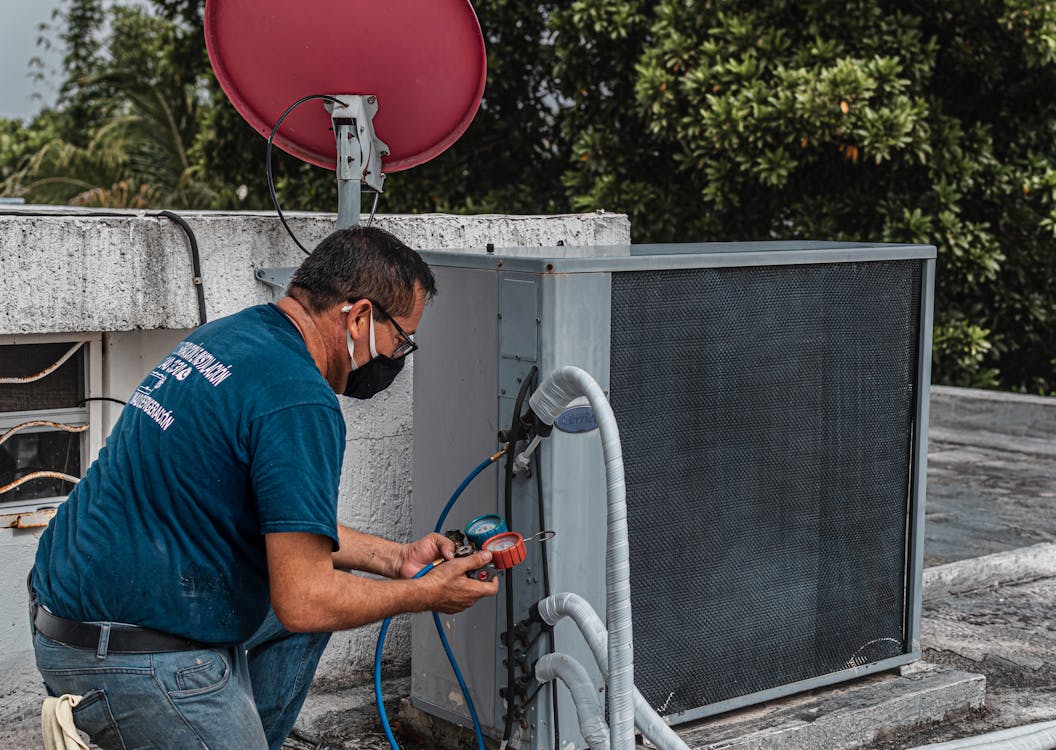
The best approach for any HVAC system project is the professional way, as it comes with a lot of perks. However, there are those tasks that might require the touch of an expert more than others in HVAC maintenance and repairs. Examples may include the following:
- Installation of a new HVAC system: Requires specialized knowledge and equipment.
- Repairing or replacing a faulty compressor: A compressor is a critical component of the HVAC system, and replacing or repairing it the DIY way can be complicated and dangerous.
- Fixing refrigerant leaks: It’s crucial to properly repair refrigerant leaks, as they can reduce efficiency and increase energy bills. It also contains hazardous chemicals that can harm you, requiring a professional to handle it.
- Replacing heat exchanger: A faulty heat exchanger can lead to carbon monoxide poisoning, making it crucial for it to be replaced. The location of the heat exchanger is within the furnace, making it challenging to disassemble if you don’t have the knowledge and expertise.
- Fixing HVAC electrical faults: Electricity is dangerous, and anyone handling faulty electrical components without proper understanding of the National Electrical Code (N.E.C.) or knowledge of their home electrical system puts themselves in danger.
Benefits of Hiring HVAC Professionals
Having a professional assist you in installing the HVAC system comes with its advantages, which may include:
- Expert knowledge: Professionals have vast training and experience ensuring the system is installed or repaired safely and properly.
- Time efficiency: Due to their experience, professionals can install the system or fix issues more quickly. On the other hand, completing DIY tasks might take more time, especially if you need time to do some research.
- Long-term reliability: HVAC systems installed or maintained by professionals are reliable and more likely to perform better and last longer, meaning a good return on investment.
- Access to the latest tools and equipment: Being in the industry day in and day out gives professionals access to the latest tools and equipment, allowing them to identify and solve problems more easily.
- Peace of mind: Entrusting the installation, maintenance, and repairs to experts gives you peace of mind as you rest assured you’re in capable hands.
- Access to warranties and guarantees: Having a professional install and repair your HVAC system means you have added protection that reassures you of high-quality work.
Deciding What’s Best for You
Now that we’ve shed some light on DIY and professional approaches, how do you decide on the best path for your HVAC installation, maintenance, and repair? Here are some questions that can guide you to the best path to meet your needs:
- What is the complexity of the task? Complex tasks such as installation require experienced hands, while simple maintenance is perfect for a DIY approach.
- Do you have the necessary skills? Are you comfortable with your DIY abilities? If not, it’s wise to hire professionals.
- Is the task time-conscious? Some tasks may require immediate attention as they may pose a risk or reduce your home’s comfort.
- What’s the cost vs. value analysis? It’s good to evaluate the overall cost and value of the DIY vs. professional approach. In most cases, the long-term savings of professional work, despite the initial cost, outweigh the short-term value of DIY savings.
- Is safety a concern? If the issue involves a task that may interfere with your safety or that of your system, it’s better to let a professional handle it.
Final Thought
Ultimately, the decision to DIY your HVAC or leave it to the professionals boils down to the task’s complexity, your skill level, and the risks and benefits involved. You can opt for a DIY approach for simple tasks as it’s cost-saving and offers satisfaction.
For complex tasks, enlisting the services of professionals can be ideal since they’ll ensure safety, compliance, and long-term liability.

